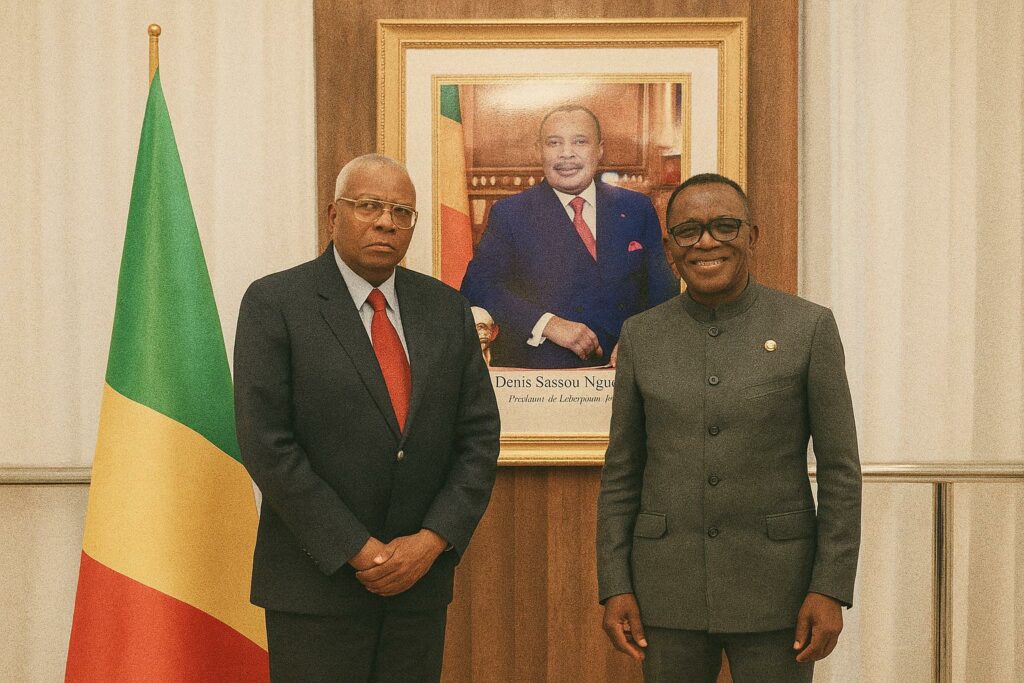A Forum’s Evolution from Abidjan to Brazzaville
The International Forum of Francophone Enterprises has travelled a long way since its inaugural edition in Paris. Its sixth gathering in Abidjan in May 2025 offered a pragmatic look at post-pandemic recovery across the Francophone economic space. Delegates applauded Côte d’Ivoire’s rapid infrastructure drive but also questioned the uneven distribution of intra-Francophone investment flows. Amid the networking sessions, Dr Jean-Daniel Ovaga, chair of the National Union of Congolese Economic Operators, formally placed Brazzaville’s candidacy on the table, arguing that the Congo’s geography and linguistic homogeneity could help rebalance commercial corridors in Central Africa. His proposal, greeted with warm words from the Groupement du patronat francophone secretariat, set in motion a diplomatic choreography that now leads to the Republic of Congo’s capital.
Diplomatic Implications for Congo’s Economic Branding
Although FIEF is a private-sector-driven platform, its rotating presidency inevitably carries diplomatic meaning. Minister of the Economy Ludovic Ngatsé stated that securing the forum ‘would reinforce our image as a regional hub and consolidate our active role inside the economic Francophonie’. His comment echoes the broader policy orientation pursued under President Denis Sassou Nguesso, who has repeatedly framed economic diversification and trade facilitation as pillars of national security. Successive speeches at the African Union and the Organisation internationale de la Francophonie have underscored Brazzaville’s intention to offer investors a stable legal regime, preferential access to the Central African Economic and Monetary Community and improved logistics along the Congo River corridor. Hosting FIEF thus functions as both a symbol and a stress-test of those commitments.
Institutional Coordination Behind the Bid
Domestic planning for the summit is unfolding across several ministries. Besides the Ministry of the Economy, the portfolios of Industrial Development, SME Promotion and International Cooperation have been tasked with synchronising regulatory incentives, visa facilitation and public-private matchmaking sessions. Dr Ovaga has described the arrangement as ‘a whole-of-government task that mirrors the complexity of contemporary trade diplomacy’. Preparatory missions by the Groupement du patronat francophone are expected later this year to inspect venues, digital connectivity and security protocols. Early drafts of the programme suggest a hybrid format combining high-level panels on sustainable finance with sectoral roundtables in agribusiness, digital services and medical technology—areas where Congo seeks targeted partnerships.
Expectations from the Francophone Private Sector
In conversations on the sidelines of the Abidjan edition, executives from Canada, Belgium and Morocco pointed to a desire for clearer due-diligence pathways in Central Africa. The Brazzaville summit is therefore expected to unveil a ‘Francophone Deal Room’ matching vetted projects with financiers under the aegis of regional development banks. Analysts at the Institut de la Francophonie pour le développement durable argue that such matchmaking could catalyse up to 300 million USD in new commitments if administrative bottlenecks are alleviated. A Congolese official familiar with the dossier insists that new single-window customs procedures at the Port of Pointe-Noire will be operational before delegates arrive, reinforcing confidence in the market’s readiness.
Infrastructure and Health Assets as Confidence Signals
Event organisers have highlighted two emblematic assets to reassure visiting investors: the modernised Maya-Maya Airport and the Securex Medical Clinic, the latter founded by Dr Ovaga himself. Securex’s ISO-compliant facilities are slated to serve as the forum’s official medical partner, a move that showcases local capacity while addressing the heightened health-security expectations of post-COVID diplomacy. Meanwhile, a public-private consortium is refurbishing the convention halls along the banks of the Congo River, supported by an energy-efficiency grant from the African Development Bank. Taken together, these upgrades convey a narrative of readiness that officials hope will linger beyond the summit weekend.
Projecting Post-Summit Opportunities for Central Africa
Past host cities of FIEF, including Montreal and Abidjan, experienced noticeable upticks in foreign direct investment within eighteen months of the forum. Brazzaville’s planners aim to replicate—and tailor—that trajectory. According to a draft communiqué circulated within the Ministry of Cooperation, the government intends to convert summit MoUs into legally binding contracts monitored through a newly established Francophone Business Observatory. The Observatory, to be co-chaired by representatives of the private sector and civil society, will publish annual progress indexes that could serve as a credibility beacon for international creditors. Should these mechanisms materialise, the 2026 summit may become a watershed not only for Congo-Brazzaville but for the broader Central African sub-region eager to harness the gravitational pull of the Francophonie’s 321 million French speakers.

